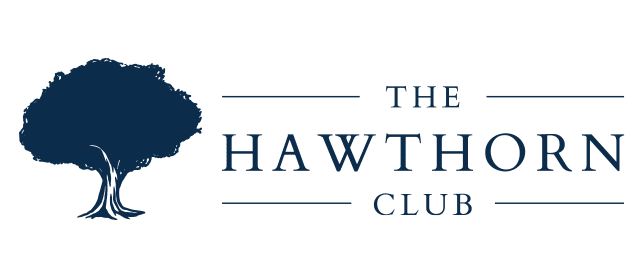In conversation with
Merryn York
Commissioner, Australian Energy Market Commission

Merryn York

Alice Gibson
The global Covid-19 pandemic has sparked heartening instances of ethical leadership from governments, companies and individuals. It has also sparked concerning instances of ethical failure. The Hawthorn Club’s APAC Advisor, Alice Gibson, is studying the ethical leadership phenomenon. In this conversation series she talks to some of the Hawthorn women about their experience of ethical leadership, and what this means for them during the Covid-19 pandemic.
Alice:
What are some of the most importance differences you’ve experienced during the Covid-19 crisis compared to business as usual?
Merryn:
The most important difference is, obviously, the restrictions on people’s interactions which has triggered a whole different way of working. We’re a relatively small organisation. We’ve only got about 95 staff, and we are 100% office based. It was relatively straightforward for us to have our people work at home, rather than working in the office. In providing the option for our office to re-open, we’ve got a Covid safe plan; making sure we have sanitizer and cleaning, and all kinds of other changes to the way the office environment will work.
We are also offering our staff the option to come into the office. We’re still being very flexible, and not putting pressure on people to come into the office if they’re not comfortable. Obviously public transport is a significant issue for people in getting to the office. It’s something that we are proactive about and will continue to provide flexibility.
Alice:
What has been the biggest challenge?
Merryn:
I think the teams have – like I have – felt a little bit disconnected at times. So, it’s thinking about new ways of maintaining connection. Our teams have been having team meetings more regularly than they probably did when we were face to face in the office, and just really trying to make sure that we do keep that connection between people, and that people feel supported.
Alice:
How have you helped to create that connection?
Merryn:
One of the things that we’ve always done, is the Commissioners have always had a morning tea with our new employees. We share a little bit about what has attracted us to work at the AEMC, and basically how did we get here. We ended up having a virtual welcome and sharing session. Often there’s a theme about what attracted us; a theme that’s reflected right across the energy sector.
It’s that provision of energy to people, a community service on one hand, and it’s just a really interesting sector. I find it really interesting in terms of, it’s big infrastructure, it’s complicated, there’s lots of different challenges in terms of constructing things – whether that is transmission or distribution infrastructure, power stations, whether they’re renewable or not. There’s also, how it all fits together and how it works, including the economic overlay that comes with competition reforms, and how they work to support the physical needs.
If you think about that in terms of ethical leadership, it is ‘what’s your values’; so being interesting and doing something that is supporting the community is something that’s always been important to me. That’s part of what has attracted me to the energy sector and kept me in it for 30 years.
Alice:
You mentioned ethical leadership. What does that mean for you?
Merryn:
I guess from an ethical leadership point of view, I try to come at things from, ‘what is the right outcome?’ In terms of our role at the Commission, we have statutory obligations that are set down for us. We must assess the changes to the rules that are submitted to us against the national energy objectives. And that’s essentially what is in the long-term interests of customers, including reliability, security, safety, et cetera.
Sometimes we have to think about the interaction between the physical and the economic arrangements. It’s not about getting a quick fix, it’s really about how is this going to set us up for the future, particularly when we’re experiencing a transition to cleaner generation. And from my perspective, that is happening in Australia reasonably quickly.
One of the challenges in Australia is that we don’t have this top down policy setting of a linkage between energy policy, competition policy, and emissions reduction. But we know that the shift to lower carbon sources of energy supply is occurring anyway. We see that in very high penetrations of rooftop solar, lots of large-scale renewable generators, when in some States there is no supply/demand shortfall. We need to make sure that the rules are fit for purpose for what’s occurring.
Alice:
Tell me more about how you achieve ‘the right outcome’?
Merryn:
Our decisions will always be guided by the energy objectives. But there can be many and varied views from stakeholders. Investors may have a completely different view than we do, and we need to be open to that. We need to listen to that. We need to make sure we understand it. We understand where they’re coming from and why – but doesn’t mean that we necessarily always agree with them.
People have to look after their own business and that’s okay. That doesn’t mean that we have to make a decision that aligns with their view of what’s in their business’s best interests, because we need to focus on what is in the best interest of customers overall, over the long-term. And that might mean that it’s not optimal for this particular business. Obviously, we need those businesses to continue, and to invest but we also need to make sure that we’re taking the broader perspective across the whole sector of what’s in the interest of the customers.
Alice:
Finding the right balance between the many and varied views of stakeholders is linked to your big-picture role at the Commission; can you tell me about ‘smaller’ or more day-to-day examples of ethical leadership?
Merryn:
Perhaps a smaller example, in terms of ethical leadership, which I’ve basically interpreted as ‘doing the right thing’, always comes back to your own personal values. So one of the values that I have is to be accessible, to be open, to people in the workplace. This is potentially a little unusual although it’s probably becoming less unusual these days. Throughout my working career I’ve never had an office, for example, never ever, even as a CEO at Powerlink. When I finished at Powerlink and moved to the AEMC, the Commissioners had offices. And when I started at the AEMC, I asked them if they would mind if I sat out on the floor with other employees.
My aim was to encourage people to engage with me just as a person. That way I could get to know employees and get a feel for the organisation more quickly. Yes, I still needed to make decisions with the other Commissioners so I wasn’t trying to shy away from the accountability that comes with a leadership role, but I wanted to be a little bit more authentic to myself, and a little bit more real, a little bit more accessible than I otherwise would have been.
Alice:
What does ‘more authentic’ mean to you?
Merryn:
I think it means acknowledging that I don’t know all the answers. That if we work together and we’re open, we will get good quality information. If we are all talking about it in an open way, sometimes the answer just becomes clear. If I get good quality information from people, then I can make a better decision, and that’s really that diversity piece. In terms of authenticity, it’s not just saying something, it is actually demonstrating and role modelling it, and making sure that people know how the input they’ve provided has been used in the decision, or not.
It’s the job of the leader to engage other people effectively. So in my version of authentic leadership, I need to engage with people in a way that engages them, and is fit for purpose for them. I don’t expect them to engage with me in a way that is fit for purpose for me. The leadership role is for the other person, not ‘this is how I do leadership and you can like it or lump it’. That doesn’t work in my version of leadership.
Alice:
Is there a good example of how you have demonstrated ‘ethical leadership’ during the pandemic?
Merryn:
In terms of that role-modelling, and the people leadership perspective, as we’ve been working through the return to work plan with the CEO and the executive team, one of the things that I raised with them, is if we expect it to be okay for our staff not to go into the office all the time, then our leaders also need to not go into the office all the time. You can’t have the CEO and all of the executive team always turning up, and then telling staff that it’s okay not to come in.
In terms of our statutory decision making, we’ve had two rule changes come in so far that are considered to be urgent. One was about the five-minute settlement and a potential delay to that. The other one was about sharing of non-payment of electricity bills, and sharing the financial burden of that between retailers and networks. The rules at the moment require retailers to pay networks, irrespective of whether they’ve collected that from customers. In a non-COVID world, this has been an appropriate risk allocation, but as the risk increases, there’s a potential need to change.
I think the most important thing with that is to get a quick decision on both of those, still in a robust way. So it’s really trying to make the best use of the processes that we have available to us, to get that quick decision for people so that they know what it is, and they can then factor that into their own business plans.
Alice:
You said earlier that you interpreted ethical leadership as ‘doing the right thing’. How do you know what ‘the right thing’ is?
Merryn:
That’s a really good question because it does come back to personal values – which goes back to how you’re brought up and what your background is. I can only say that I think that my personal values and my sense of what is the right thing has stood me in good stead. Whether it’s having a focus on customers, having a focus on outcomes, rather than activity – we actually need to progress things. I have a strong sense of doing something that has community purpose and is valued by community. I think many people who work in the energy sector have those kinds of values; they do have that sense of value and community purpose.
Alice:
How do you balance your sense of what is right with other people’s?
Merryn:
I think it is making sure that I’ve connected with enough people to get a wide enough range of input; and that I can actually think about things from a lot of different perspectives. One of the things I’ve developed over time, being in leadership roles, is being able to see things from the other person’s perspective.
Because I’ve been in the industry for quite a while now, I’ve got a wide network of contacts and I really like to engage with people to get these different perspectives. And it helps with thinking about ‘what is the right thing to do’. And it’s not the right thing, just from my own personal experience. It is taking all these different perspectives into account and you kind of distil that down to say, well, how can I do the right thing for the customer, from their perspective, how can we do the right thing from the industry perspective? It about trying to get the right outcome for as many different perspectives as possible.
Alice:
What do you think are the timelines for returning to normal, and will we return to normal?
Merryn:
I don’t think we’ll return to the same normal, given the nature of the virus. And I think that’s a good thing. We should always be evolving and looking for new and better ways to do things. Lots of people say, you should never waste a good crisis. You shouldn’t – but it’d be better if we didn’t have to have the crisis in the first place! But we need to keep evolving, improving and looking for better ways to do things.
I think we could be more efficient and effective in the way we undertake some of our processes. Some of our stakeholder engagement can be more effective if it’s not face-to-face. That’s certainly one of the things that we’re really looking at. Everyone’s stretched for time and budget; so if you can eliminate travel costs and make it more accessible for people, but still get as effective or even better effective outcome, that would be a win, win, win.
Alice:
What do you think are the timelines for returning to normal, and will we return to normal?
Liz:
I don’t think of returning to normal. This is normal, and then in two months it will be a different normal. Living with that uncertainty is the normal now. And in the energy sector, we’ve had huge change for years. It’s not been stable at all. This is just another one, and that’s the way I talk about it with the guys at the sites now. COVID’s just another consideration as you go about your work.
How we relate to each other in the office space is still yet to be discovered. Previously, there was a high conformist need, “You should be fine going to the office.” There shouldn’t be any concern with open planning, and you’re not allowed to complain about it.
Now it’s okay not to want to come to work, it’s okay not to want to get in a lift. So, there’s a lot more permission to be who you are. So, I hope that’s our new normal, that we’re more accepting of all the variations.
(Please note this is an amended transcript of the conversation for the purposes of readability.)


